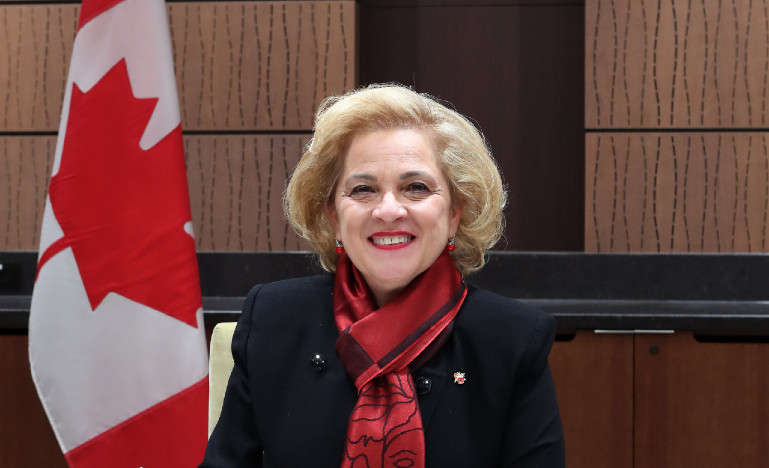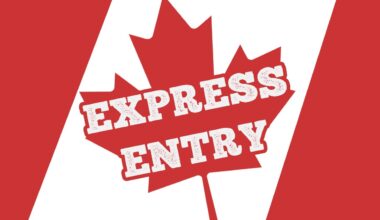Prime Minister Mark Carney has appointed Lena Metlege Diab as the country’s new Minister of Immigration, Refugees and Citizenship. This appointment comes on the heels of the Liberal Party’s recent federal election victory and signals potential shifts in how Canada approaches immigration in the years ahead.
A Strategic Cabinet Move in Changing Times
Following what political observers are calling a decisive Liberal victory, Prime Minister Carney wasted no time in reshaping his cabinet to align with his vision for Canada’s future. The appointment of Lena Metlege Diab, the Member of Parliament for Halifax West, represents more than just a routine cabinet shuffle – it’s a strategic choice that brings both seasoned experience and fresh perspective to one of Canada’s most critical portfolios.
Diab succeeds Rachel Bendayan, who had held the immigration portfolio since March 2025 following Marc Miller’s tenure. While cabinet changes after elections are standard practice in Canadian politics, this particular appointment comes at a pivotal moment when immigration policy sits at the center of national debate.
“Immigration touches every aspect of Canadian society – from our economy to our communities,” notes political analyst Dr. Sarah Mitchell. “Carney’s choice of Diab suggests he’s looking for someone who understands both the complexities of immigration policy and the practical realities of implementation.”
Meet Canada’s New Immigration Minister: A Trailblazer with Deep Roots
If you’re wondering who Lena Metlege Diab is and what she brings to this crucial role, her background tells a compelling story of personal achievement and public service.
Born and raised in Halifax to Lebanese immigrant parents, Diab embodies the Canadian immigration success story. Her journey from the daughter of newcomers to holding one of the most influential positions in Canadian government reflects the opportunities that Canada’s immigration system can create.
A Record of Provincial Leadership
Diab isn’t new to immigration policy. From 2013 to 2021, she served as Nova Scotia’s Minister of Immigration, where she made her mark in several groundbreaking ways:
- Record-breaking achievements: Under her leadership, Nova Scotia nominated record numbers of new permanent residents, helping the province address critical labor shortages and demographic challenges
- Innovation in immigration: She pioneered the introduction of new immigrant entrepreneur streams, recognizing that business immigration could drive economic growth in smaller provinces
- Express Entry alignment: Diab was instrumental in developing Express Entry-aligned pilots for provincial immigration, making Nova Scotia an early adopter of streamlined federal-provincial cooperation
Her provincial experience is particularly relevant given the current emphasis on Provincial Nominee Programs in Canada’s immigration strategy.
Breaking Barriers and Making History
Diab’s career has been marked by several historic firsts:
- First woman of Lebanese descent elected to a legislature in Canada
- First woman to serve as Attorney General and Minister of Justice in Nova Scotia’s history
- First female president of the Canadian-Lebanon Society of Halifax
These achievements speak to her ability to navigate complex political landscapes while advocating for diverse communities.
A Multilingual Advantage in Immigration
In a portfolio where communication across cultures is essential, Diab’s trilingual abilities in English, French, and Arabic provide significant advantages. This linguistic diversity will be particularly valuable as Canada continues to prioritize francophone immigration outside Quebec and engage with increasingly diverse source countries for immigration.
Her academic credentials – degrees in commerce and law from Saint Mary’s University and Dalhousie University respectively – combined with her experience as both a practicing lawyer and small business owner, give her insight into the legal complexities of immigration law and the practical needs of employers seeking foreign talent.
What This Appointment Signals About Carney’s Immigration Vision
Prime Minister Carney’s choice of Diab provides important clues about the direction of Canadian immigration policy under his leadership. Several factors suggest why this appointment makes strategic sense:
Experience with Balanced Approaches
Diab’s provincial experience involved balancing multiple competing priorities – economic development, demographic growth, community integration, and federal-provincial cooperation. This experience will be crucial as the federal government seeks to manage immigration levels while addressing concerns about housing, infrastructure, and social services.
Understanding of Regional Needs
Having led immigration policy in a smaller province, Diab understands the unique challenges faced by regions outside major metropolitan centers. This perspective could influence federal policies to better support regional immigration distribution.
Proven Track Record with Innovation
Her work in Nova Scotia demonstrated an ability to develop creative solutions within existing frameworks. This skill will be valuable as Canada seeks to refine its immigration system without fundamental overhaul.
Immigration Policy Under the Carney Government: What to Expect
While specific mandate letters haven’t been released, Prime Minister Carney has outlined several key priorities that will likely shape immigration policy under Minister Diab’s leadership:
1. Sustainable Immigration Levels
Carney has consistently spoken about scaling permanent immigration back to “sustainable” levels. This doesn’t necessarily mean dramatic reductions, but rather immigration levels that align with Canada’s capacity to provide housing, healthcare, and other essential services to newcomers.
“We need immigration that builds Canada’s future without overwhelming our present capacity,” Carney stated during the election campaign.
2. Continued Economic Focus
Despite discussions about reducing overall numbers, Carney remains committed to economic immigration as a driver of Canadian prosperity. This suggests continued emphasis on programs like Express Entry and Provincial Nominee Programs that prioritize candidates with skills needed in the Canadian labor market.
3. Francophone Immigration Expansion
Building on previous government commitments, the Carney administration is expected to further prioritize francophone immigration outside Quebec. Diab’s fluency in French positions her well to advance these initiatives.
4. Temporary Resident Management
Perhaps the most significant policy area will be managing temporary resident numbers, including international students and temporary foreign workers. The previous government’s caps and restrictions are likely to continue, with possible refinements based on evolving circumstances.
The Power and Responsibility of the Immigration Portfolio
It’s worth understanding just how significant the immigration minister’s role is in shaping Canadian policy. The position comes with extraordinary discretionary powers that can have immediate impacts on thousands of lives.
Policy-Making Authority
The immigration minister can introduce or suspend public policies through temporary measures that don’t require parliamentary approval. This includes:
- Changes to work permit eligibility
- Modifications to international student work hour limits
- Adjustments to family reunification processing
- Implementation of new pilot programs
Economic Impact
With immigration accounting for nearly 100% of Canada’s labor force and population growth, the minister’s decisions directly influence:
- Regional economic development
- Labor market dynamics
- Housing and infrastructure demand
- Social service capacity
Balancing Act
The role requires balancing multiple, sometimes competing interests:
- Economic needs versus infrastructure capacity
- Humanitarian obligations versus system integrity
- Federal priorities versus provincial needs
- Short-term pressures versus long-term planning
What This Means for Immigration Applicants and Stakeholders

For those currently navigating Canada’s immigration system or considering applying, Minister Diab’s appointment suggests several likely continuities and potential changes:
Likely Continuities
- Emphasis on in-Canada experience: The focus on Canadian Experience Class and Provincial Nominee Program candidates is likely to continue
- Skills-based selection: Category-based draws in Express Entry will probably remain a priority
- French-language advantages: Francophone candidates will continue to benefit from preferential treatment
Potential Areas of Change
- Regional distribution: Diab’s provincial experience might lead to enhanced programs encouraging immigration to smaller provinces and communities
- Integration support: Her background suggests possible improvements to settlement and integration services
- Stakeholder engagement: Her collaborative approach may lead to more extensive consultation with provinces, employers, and settlement organizations
The Road Ahead: Challenges and Opportunities
Minister Diab takes on the immigration portfolio at a complex time. She’ll need to address several immediate challenges:
Managing Public Opinion
Recent polls show increased public concern about immigration levels and their impact on housing and services. Balancing these concerns with Canada’s economic and demographic needs will require careful communication and policy calibration.
System Backlogs
Processing delays across multiple immigration streams need attention. Her legal background may help in identifying administrative improvements to reduce wait times.
Federal-Provincial Coordination
With provinces increasingly assertive about their role in immigration selection, Diab’s experience working within federal-provincial frameworks will be valuable.
International Recruitment
As other countries compete more aggressively for global talent, Canada needs to ensure its immigration system remains attractive to skilled workers while managing domestic concerns.
A Personal Touch to National Policy
What sets Diab apart is her personal connection to the immigration experience. As the daughter of Lebanese immigrants, she brings an understanding of the newcomer journey that goes beyond policy expertise.
“She knows what it means for families to build new lives in Canada,” says Mahmoud Hassan, president of the Halifax Immigrant Services Association. “That personal understanding will be invaluable in ensuring our policies serve not just economic goals but human needs.”
This perspective could influence approaches to family reunification, settlement services, and integration support – areas where policy effectiveness depends on understanding the lived experience of immigration.
Looking Forward: Early Priorities and Expectations
While it’s early days, several areas are likely to receive immediate attention under Minister Diab’s leadership:
1. Mandate Letter Implementation
Once her mandate letter is released, it will provide the clearest indication of government priorities and expected timelines for policy changes.
2. Stakeholder Consultation
Given her collaborative approach, early meetings with provincial immigration ministers, settlement organizations, and employer groups are likely.
3. System Reviews
Addressing processing delays and administrative bottlenecks may be an early focus, particularly given her legal background and understanding of administrative efficiency.
4. International Engagement
As immigration becomes increasingly competitive globally, re-engaging with international partners and source countries may be a priority.
Conclusion: New Leadership for Evolving Challenges
The appointment of Lena Metlege Diab as Canada’s new Immigration Minister represents both continuity and change. Her extensive experience in immigration policy provides stability during a period of significant challenges, while her unique background and perspective offer the potential for thoughtful evolution in Canada’s approach.
For immigration applicants, practitioners, and stakeholders, the appointment suggests a minister who understands both the technical complexities of immigration policy and the human impact of these decisions. Her track record of innovation within existing frameworks suggests that while dramatic policy overhauls are unlikely, meaningful improvements and refinements are possible.
As Canada continues to navigate the balance between welcoming newcomers and managing domestic capacity, Minister Diab’s leadership will be crucial in maintaining the country’s reputation as a destination of choice for global talent while ensuring that immigration serves the interests of both newcomers and existing Canadians.
The coming months will provide clearer indication of policy directions, but early signs suggest that Canada’s immigration system will benefit from leadership that combines extensive experience, personal understanding of the immigration journey, and a collaborative approach to complex challenges.
At Dalitzo Immigration Services, we remain committed to providing accurate, timely information about Canada’s evolving immigration landscape. Our team continues to monitor policy developments and their implications for our clients and the broader immigration community.
Sources:






